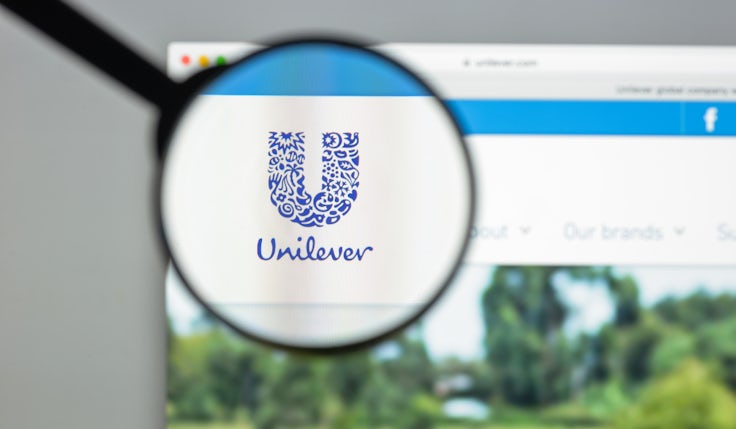Fernando Fernandez has promised to “attack” mediocrity within the business, as the standard of Unilever’s top 200 leaders is assessed – with 25% expected to be replaced.

Unilever CEO Fernando Fernandez says he is “fed up with pockets of mediocrity” at the FMCG giant, as he accepts the business lost focus on volume growth as its “fundamental metric”.
Speaking at the Barclays Global Consumer Staples Conference in Boston on Wednesday (4 September), Fernandez detailed the wide-ranging changes he has made to the business since he took over as CEO in February.
Unilever has reduced its “white collar” workforce by 16% in the last 18 months and plans to deliver end of €800m (£695m) in savings by the end of 2026. There is also what Fernandez dubs as “absolute accountability” throughout the business structure, with four business group presidents and 44 business units responsible for P&L.
“We are ensuring ruthless execution everywhere, in every market,” he told the audience.
 Unilever CEO Fernando Fernandez says he is “fed up with pockets of mediocrity” at the FMCG giant, as he accepts the business lost focus on volume growth as its “fundamental metric”.
Unilever CEO Fernando Fernandez says he is “fed up with pockets of mediocrity” at the FMCG giant, as he accepts the business lost focus on volume growth as its “fundamental metric”.
Speaking at the Barclays Global Consumer Staples Conference in Boston on Wednesday (4 September), Fernandez detailed the wide-ranging changes he has made to the business since he took over as CEO in February.
Unilever has reduced its “white collar” workforce by 16% in the last 18 months and plans to deliver end of €800m (£695m) in savings by the end of 2026. There is also what Fernandez dubs as “absolute accountability” throughout the business structure, with four business group presidents and 44 business units responsible for P&L.
“We are ensuring ruthless execution everywhere, in every market,” he told the audience. “We have codified the metrics we will measure so everyone knows what they have to deliver. We are fed up with the mediocrity that we have in some places. We are attacking that fast.”
Part of this process is assessing each of its “top 200 leaders” and ensuring they are at the level Unilever “deserves”. Fernandez expects a 25% refresh from that process, with “emerging stars” fast tracked into more important roles and new talent brought in if needed.
The CEO also reflected on Unilever being “inconsistent” in treating volume growth as its core metric. He pointed to Kraft Heinz’s bid for the company in 2017 as something that “derailed” the business, but believes Unilever is poised to turn that around.
The firm’s decision to focus on its 30 “power brands” has been part of that process, as is the move to spin off the ice cream division to focus more on beauty and wellbeing, personal care, foods and home care.
Unilever CEO: We will not accept ‘uncompetitive’ brand investment to drive profitFernandez referenced Unilever’s highest gross margin in a decade posted in 2024 – as well as 2.9% volume growth, 45% growth margin and a 15% increase in brand and marketing investment – as evidence that its turnaround was starting to take hold.
Unilever will also have a new “marketing philosophy”, the CEO claimed, built around two “fundamental concepts”, driving desire at scale to “elevate” the aspirational qualities of its brands and create new markets.
“Because the only way in FMCG to ensure consistent share gain is to create markets, to create formats, to create segments and get a disproportionate share of the new segments that emerge,” he said.
Reference was also made to Unilever’s pivot to an influencer-first marketing model.
Fernandez is clear in his belief that brands of the future will be “recommended by peers” and that is why for brands to remain “contemporary” they must lean into social-first marketing ideas. He pointed to its successful social campaign for Vaseline as an example of a social-first campaign that took a centuries-old brand and made it relevant for a modern audience.
The Unilever CEO is well aware of the risks involved in handing over a large amount of control of its narrative to influencers and its audience, but is comfortable with the risk.
“Of course, in the past, you had absolute control of your communication. You were putting an ad on TV that was under your control. But what is the option, staying with that model? That’s not an option. You have to live with a bit more risk,” he says.
Fernandez believes the “very serious screening” process the business has in place before partnering with any influencer gives Unilever a “competitive advantage”, versus smaller players looking to mimic its strategy as they do not have the ability to put that safety net in place.


